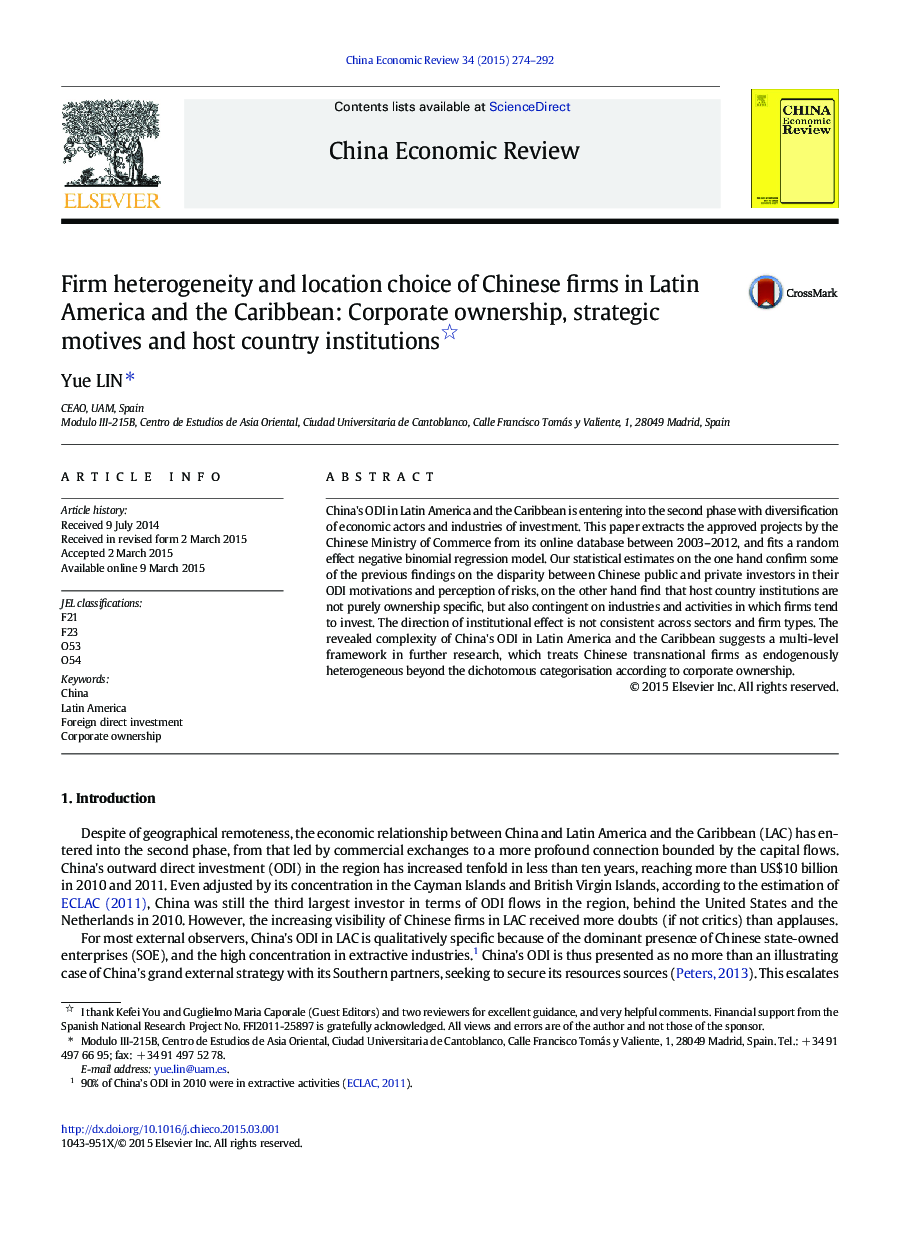| Article ID | Journal | Published Year | Pages | File Type |
|---|---|---|---|---|
| 5047469 | China Economic Review | 2015 | 19 Pages |
â¢Chinese SOEs as a whole have been drawn to the countries with weak rule of law in Latin America and the Caribbean.â¢The SOEs investing in extractive subsidiary have been particularly seeking weak institution in the host countries.â¢The SOEs investing in trading subsidiary have been seeking strong rule of law in the host countries.â¢Chinese POEs in general have been insensitive to host country institutions.â¢Chinese POEs have been attracted by weak rule of law at their early stage of investment.
China's ODI in Latin America and the Caribbean is entering into the second phase with diversification of economic actors and industries of investment. This paper extracts the approved projects by the Chinese Ministry of Commerce from its online database between 2003-2012, and fits a random effect negative binomial regression model. Our statistical estimates on the one hand confirm some of the previous findings on the disparity between Chinese public and private investors in their ODI motivations and perception of risks, on the other hand find that host country institutions are not purely ownership specific, but also contingent on industries and activities in which firms tend to invest. The direction of institutional effect is not consistent across sectors and firm types. The revealed complexity of China's ODI in Latin America and the Caribbean suggests a multi-level framework in further research, which treats Chinese transnational firms as endogenously heterogeneous beyond the dichotomous categorisation according to corporate ownership.
